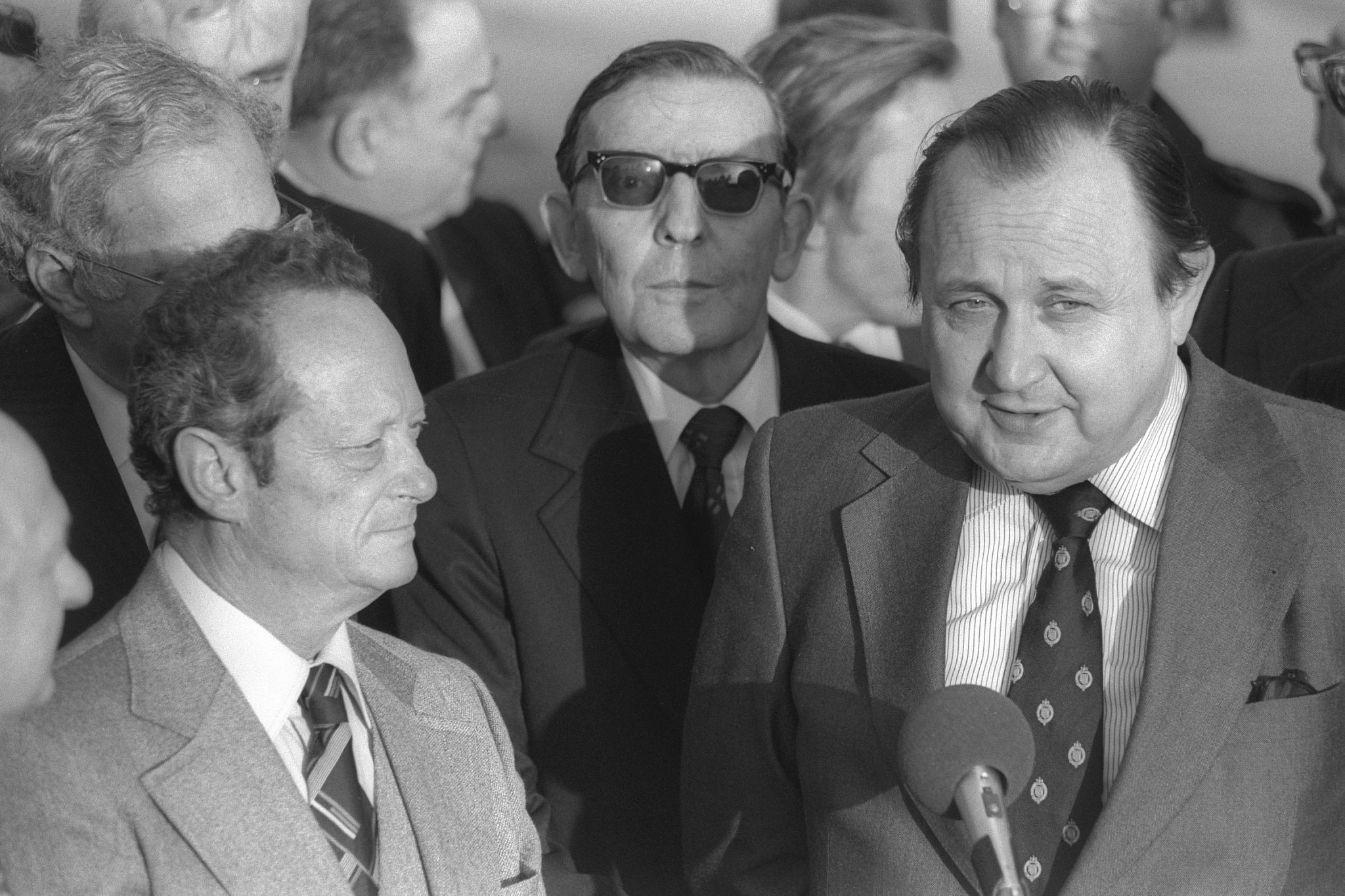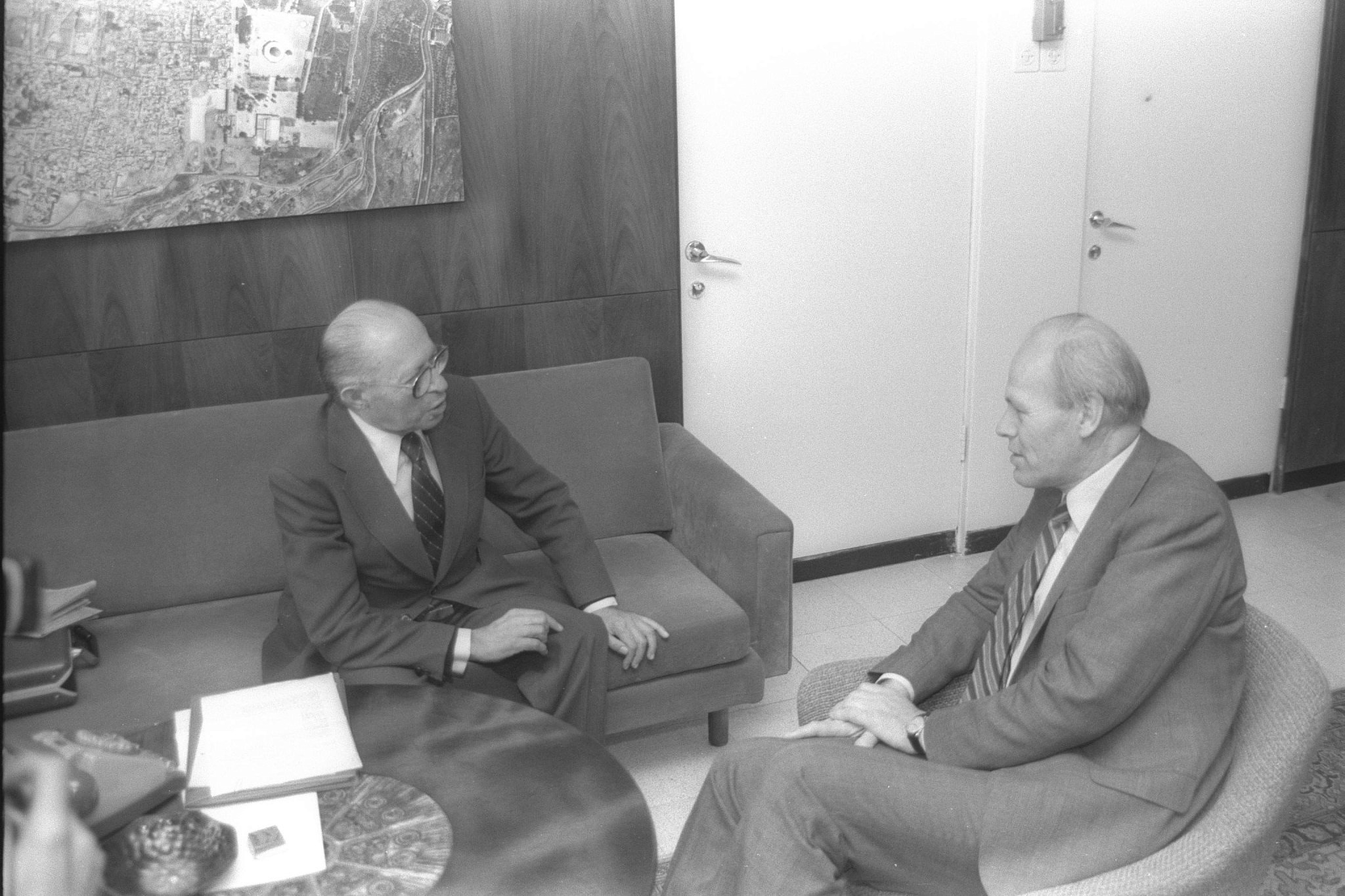Earlier this month, the European Union’s embassy in Israel announced that it was canceling its Europe Day reception, scheduled for May 9, over far-right National Security Minister Itamar Ben Gvir’s insistence on speaking at the event. Far from proving the strength of the human rights values of the European countries, as stated by the EU delegation’s spokesperson, the decision is just another illustration of these countries’ hypocrisy in their engagement with Israel-Palestine.
The announcement came after a week of media reports suggesting that the EU delegation was hoping the Netanyahu government would send another minister to the reception instead. If they would have been fine with another minister from the most extreme-right government in Israel’s history speaking at the event, the EU diplomats may as well have gone ahead with Ben Gvir’s participation and just covered their heads with blankets while he spoke.
The embarrassment did not end there. A day before the Europe Day celebration, Israel demolished a school in a Bedouin community near Bethlehem in the occupied West Bank, which was built with funding from the EU. In response, the EU and German Foreign Ministry condemned the demolition and further stressed that such actions are “illegal under international law, and children’s right to education must be respected.” Their statement added: “The EU calls on Israel to halt all demolitions and evictions, which will only increase the suffering of the Palestinian population and risk inflaming tensions on the ground.”
This statement joins countless other condemnations by the EU and European governments of Israel’s policy in the occupied Palestinian territories. What cannot be found in any of them, however, is an indication of the consequences Israel will face if it continues with these policies, and the sanctions that these governments will impose in response.
The huge gap between the strength of the condemnations — which are sometimes harshly worded — and the reality in which Israel continues to face zero consequences is the result of state interests and realpolitik. The issue of human rights has never been a central consideration in European policy. Instead, European countries act in the context of their comprehensive security, intelligence, political and economic ties with Israel, and are also influenced by the United States and the NATO alliance.

Despite the EU’s repeated condemnations of Israel’s violation of human rights and international law, which are often more pronounced than those heard on the other side of the Atlantic, these statements are meaningless so long as the governments making them continue to prioritize their own interests over human rights. Now, following the declassification in the Israel State Archives of thousands of telegrams and documents from 1967-90 in the files of Israel’s Ministry of Foreign Affairs, we can see that these have been European states’ priorities regarding Israel going back decades.
‘A Holocaust on the German economy’
The documents show, for example, that discussions between representatives of Israel and West Germany in the 1970s-80s barely ever dealt with the Israeli-Palestinian conflict from the perspective of international law and violations of the human and civil rights of the Palestinians.
Even when the West German officials publicly or privately condemned Israel’s policies in the occupied Palestinian territories, this stemmed from the interests of West Germany itself and not from any real commitment to human rights. In dozens of telegrams, West Germany’s support for the Palestinian people’s right to self-determination is explained as arising only by virtue of its support for the German people’s right to self-determination through the state’s unification with East Germany.
During the German Federal Minister for Foreign Affairs Hans-Dietrich Genscher’s visit to Israel in June 1978, he made it clear to the Israeli officials he met that Germany did not necessarily support an independent Palestinian state, but rather an autonomous entity. In a summary of Israeli Foreign Minister Yitzhak Shamir’s visit to West Germany in November 1980, meanwhile, it was written that Genscher told him that Palestinian self-determination must depend on Israel’s consent. And in a document prepared at Israel’s Ministry of Foreign Affairs on Jan. 19, 1983, it is written that West Germany does not support the establishment of a fully sovereign Palestinian state but rather some form of “political authority.”
Most read on +972
From the mid-1970s, West Germany began to more vocally condemn Israel’s settlement project and its acquisition of territory by force, claiming that it harmed the efforts for peace. Yet the archival documents — which include dozens of cables documenting discussions between Israeli and West German officials, as well as situation assessments prepared by senior Israeli Foreign Ministry officials — reveal that for West Germany, peace and the protection of the rights of Palestinians harmed by Israel’s settlement project were primarily a financial interest: the fear was that the conflict would spiral into a regional war that would damage the West German economy.
In a summary written on Feb. 16, 1975 by the deputy director of Israel’s Ministry of Foreign Affairs for Western Europe, Nissim Yaish, in preparation for Foreign Minister Yigal Allon’s visit to West Germany, Yaish explained with a strange choice of words that in political and economic circles in West Germany, “there is unanimity that this time such a war will have a far-reaching impact on all its affairs internally and externally and that it could wreak a Holocaust on the German economy. Based on this attitude, West Germany is interested in rapid progress toward a [peace] agreement.”

In a telegram sent by the Israeli envoy in Bonn, Ephraim Elon, to the director of the Israeli Foreign Ministry’s European department on March 21, 1980, he wrote that in his meeting with the person in charge of the Middle East at the West German Foreign Ministry he “spoke, of course, about the issue of settlements, which, as it was expressed, makes it difficult for our devoted friends to protect Israel’s actions and policies.” The director of the European department added in handwriting “not new — the old hymn.” Even then, Israel saw this argument as a cliché.
It can be assumed that today, in view of Israel’s peace agreements with Egypt and Jordan, as well as the Abraham Accords signed in recent years with other Arab countries, Germany, which leads the EU, is less afraid of the outbreak of a regional war that will lead to a “Holocaust” for its economy, and therefore has no problem putting up with the “status quo” of Israel’s apartheid regime and war crimes in the occupied Palestinian territories.
Lack of sincerity
The recently declassified documents and cables in the Israel State Archives reveal a similar story regarding Israel’s relations with Norway during the 1980s. On the surface, Norway is one of Europe’s fiercest critics of Israel’s policies toward the Palestinians. But like West Germany, Norwegian governments were driven primarily by economic and other interests rather than a commitment to human rights.
A review of the relations between the two countries prepared at the headquarters of the Foreign Ministry in Jerusalem in February 1984, noted that Norway’s criticism of Israel’s invasion of Lebanon in 1982 and its role in the Sabra and Shatila massacre “went far beyond the criticism of the other Nordic countries and most European countries, both on the media and the political level.” Nonetheless, senior Norwegian officials visited Israel the following year and made an important leap in the states’ relations by agreeing for the first time to purchase weapons’ compartments from Israel and to sell oil to it.

The gap between the Norwegian government’s harsh condemnations of Israel’s policy in Lebanon and the reality of conducting “business as usual” was not unique to Israel; indeed, Norway behaved in a similar way toward the apartheid regime in South Africa. In a telegram dated Nov. 4, 1986, sent by the Israeli ambassador in Oslo, Judith Hibner, to the director of the European department at the Israeli Foreign Ministry, she wrote: “Norway will try to be the leader among the Nordic countries in an anti-South African trend, in order to prove that it is the flag bearer in matters such as these.” But because parts of Norway relied extensively on trade with South Africa, it would not impose any material cost on the regime due to these “vital economic interests.”
Some four decades later, the picture remains largely the same. The lack of sincerity in the EU and European government’s condemnations of Israel, and the lack of transparency regarding their true military, economic, and political interests in maintaining the status quo, simply gives the green light to Israeli governments to ignore their statements and to feel free to continue violating international law without consequence.




